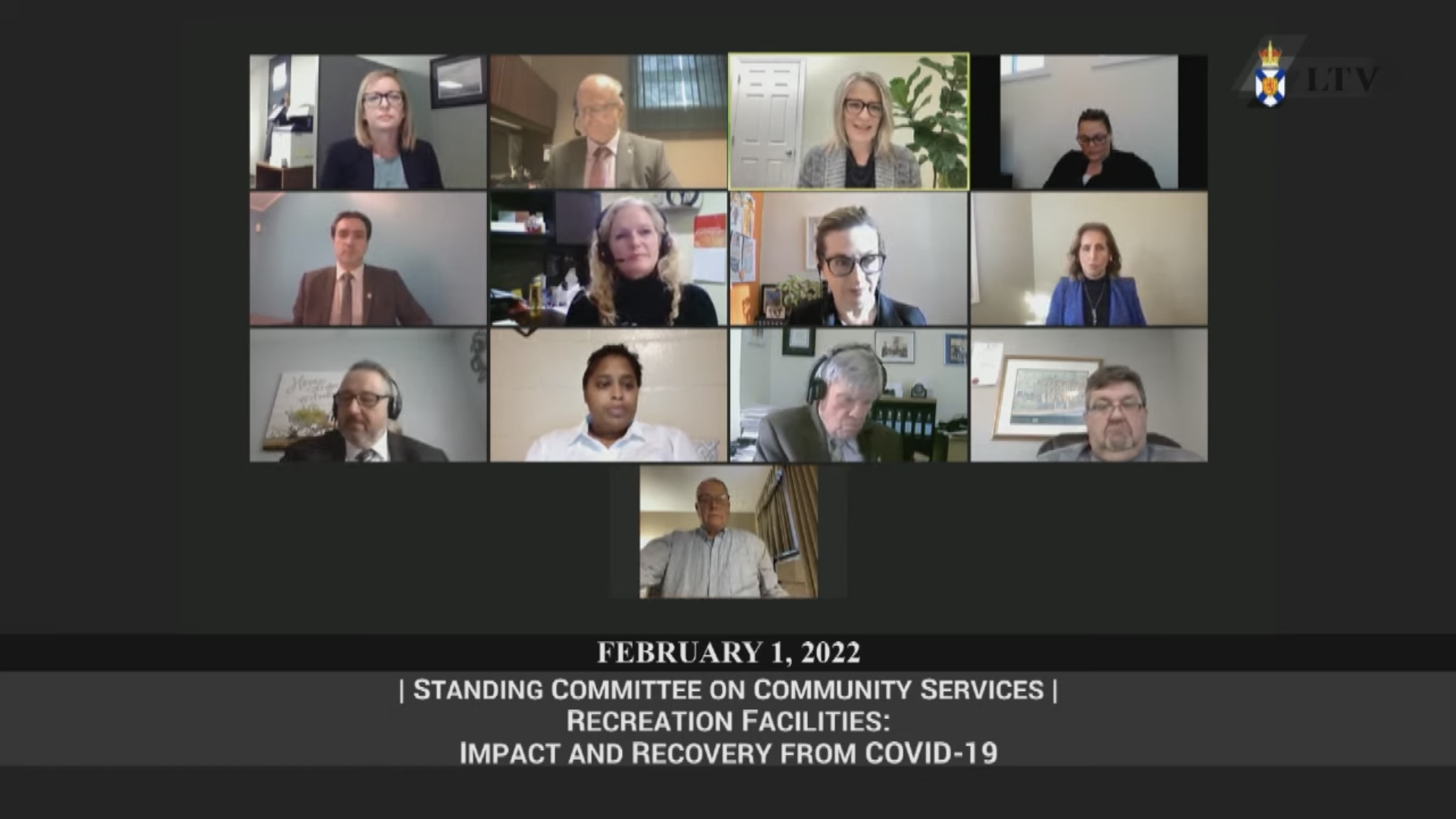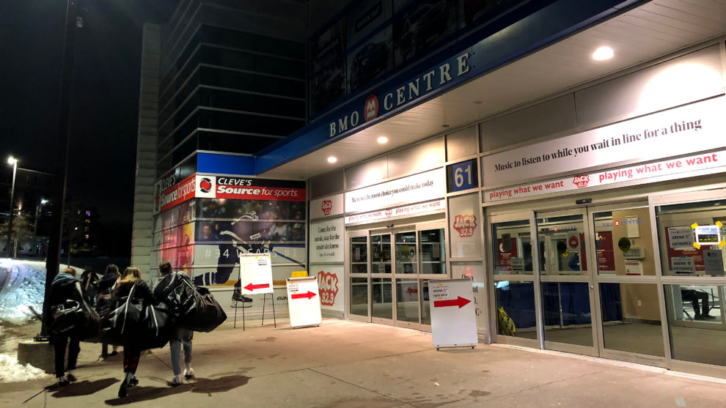Rec facilities in Nova Scotia scraping by, loss of revenue can’t be recovered
Arenas, pools, community centres feeling effects of the COVID-19 pandemic

caption
Members of the legislature's standing committee on community services met to discuss recreational facilities and the impact of COVID-19.Nova Scotia’s recreational facilities are suffering through the pandemic and staying afloat has not been easy.
The legislature’s standing committee on community services met on Tuesday to discuss the impact of the COVID-19 pandemic on rec centres, rinks and pools.
Jennie Greencorn, executive director of the Recreation Facility Association of Nova Scotia, and past president Paul MacDonald spoke to the committee.
“The amount of core operational funding provided by the province to support us has decreased by 9.5 per cent over the past 10 years, as we see a 20 per cent climb in inflation,” said Greencorn.
The Recreation Facility Association of Nova Scotia is the only association for recreational facilities in Atlantic Canada. Formed in 1992, the association is made up of members who manage or have managed community centres, arenas, pools and other facilities.
Greencorn says recreational facilities have lost revenue from rentals, food and beverage sales, and participation fees that would typically fund the facilities.

caption
Arenas, pools and community centres suffered losses they can’t make back because of event cancellations and the inability to fundraise.Event cancellations, reduced capacities and temporary closures have made it difficult for facilities to recover from losses.
“Event-wise, we haven’t had an event of any sort in the last 18 months and we currently have some looking maybe into the early spring, late spring, but nobody can make a commitment because they are worried about another wave. Moving the event is always difficult,” says MacDonald, who operates three facilities in Cape Breton Regional Municipality, including Centre200, Cape Breton’s largest arena.
Greencorn and MacDonald agree that the Omicron wave of COVID-19 has been much more difficult for facilities to navigate, as the funding they had in previous waves is no longer available.
“The input we are getting from our facilities is that there’s not as much support, the wage subsidy has stopped, and that they feel that it’s the most difficult wave of all so far,” said Greencorn.
Although there were times during the COVID-19 pandemic when facilities could operate with fewer restrictions, none have been able to operate at full capacity since March 2020, according to Greencorn.
MacDonald said the timing of the Omicron wave has made things worse.
“This is an important time for musicians and folks in the arts community,” said MacDonald. New Year’s Eve is an important night for community centres and arenas hosting concerts; the Omicron wave forced cancellation of those plans.
Greencorn said it’s harder for rural facilities to make up for losses compared to urban or municipally-owned centres, but the effects of the COVID-19 pandemic on recreation is felt throughout the province.
Dartmouth North MLA Susan Leblanc said recreation and culture are overlooked for funding. She says if they were funded properly, it would be “upstream funding,” and less money would need to be put into things like healthcare and mental health care, because recreation activities improve well-being and community outreach.
Greencorn and MacDonald say easier access to funding is needed. Greencorn said she doesn’t think any facilities have closed permanently due to COVID-19, but most have been on the verge. She said if it weren’t for wage subsidies and funding, it would be a different story.
About the author
Carleigh MacKenzie
Carleigh MacKenzie is a Cape Breton-born writer. She is the copy editor for the Dalhousie Gazette and the vice-president of Dalhousie’s Creative...
